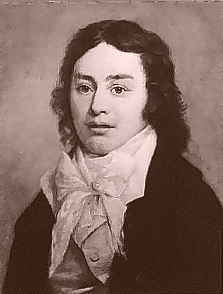
(TEXT BELOW THE ANALYSIS)
Youth and Age’ is the one of the most magnificent poem written on aging of human beings. Romantic writers were always smitten by the youth and childhood for it’s beauty and innocence, as Wordsworth famously said “the child is the father of the man” . So how did Romantics felt when they themselves grew older- this question is effortlessly answered by the poem itself. Wordsworth and Coleridge did but Shelley, Keats and Byron famously never saw their wrinkled phase. By the time, Coleridge and Wordsworth approach a more realistic view towards life which is visible in their later works too.
Samuel Taylor Coleridge has eminently described the transition to old age from youthful days. He has used subjective emotions as well as experience in describing the reality of old age as he begun working on it in his early fifties (barely a decade away from his death). Clearly he is not so fond of his silver locks which points towards his premature aging too. For Coleridge, youth is the beautiful phase of life that he yearns to live once more. He has succeeded in describing the vigor and vitality of youth with his powerful imagery.
The poem presents an experienced side of Coleridge as compared to his previous writings. He has encapsulated the loss of vitality of his young age and helplessness of old age in every stanza. For him, the process of ageing was more woeful than arrival of death. The beauty of youth has been always overshadowed by the unpleasant experiences of old age ( after all it wasn’t the era of age rewinding Botox and surgeries). Drawing the contrast between youth and old age, Coleridge shows how the same morning dew drops look like gems when we are young whereas these same dew drops seems tears of pain and suffering in our old age. Basically it’s all about our perception that changes from time to time about the same thing and this seems to be the center view of the poem.
Youth and Age has successfully shown human being’s desire to remain young forever and bitterly adjusting with the old age. This poem was appreciated a lot by Coleridge’s contemporaries; was also his personal favorite. It can be compared with Thomas Hardy’s “I Look Into My Glass” where he finds a hard contrasts between his ‘wasting skin’ and his youthful heart. James Henry Leigh Hunt, Coleridge’s fellow poet, journalist and critic remarked ‘Youth and Age’ as ‘one of the most perfect poems, for style, feeling, and everything, that were ever written’.
YOUTH AND AGE
Verse, a breeze mid blossoms straying,
Where Hope clung feeding, like a bee—
Both were mine! Life went a-maying
With Nature, Hope, and Poesy,
When I was young!When I was young?—Ah, woful When!
Ah! for the change ’twixt Now and Then!
This breathing house not built with hands,
This body that does me grievous wrong,
O’er aery cliffs and glittering sands,
How lightly then it flashed along:—
Like those trim skiffs, unknown of yore,
On winding lakes and rivers wide,
That ask no aid of sail or oar,
That fear no spite of wind or tide!
Nought cared this body for wind or weather
When Youth and I lived in’t together.Flowers are lovely; Love is flower-like;
Friendship is a sheltering tree;
O! the joys, that came down shower-like,
Of Friendship, Love, and Liberty,
Ere I was old!Ere I was old? Ah woful Ere,
Which tells me, Youth’s no longer here!
O Youth! for years so many and sweet,
’Tis known, that Thou and I were one,
I’ll think it but a fond conceit—
It cannot be that Thou art gone!Thy vesper-bell hath not yet toll’d:—
And thou wert aye a masker bold!
What strange disguise hast now put on,
To make believe, that thou are gone?
I see these locks in silvery slips,
This drooping gait, this altered size:
But Spring-tide blossoms on thy lips,
And tears take sunshine from thine eyes!
Life is but thought: so think I will
That Youth and I are house-mates still.Dew-drops are the gems of morning,
But the tears of mournful eve!
Where no hope is, life’s a warning
That only serves to make us grieve,
When we are old:
That only serves to make us grieve
With oft and tedious taking-leave,
Like some poor nigh-related guest,
That may not rudely be dismist;
Yet hath outstay’d his welcome while,
And tells the jest without the smile.


Leave a comment